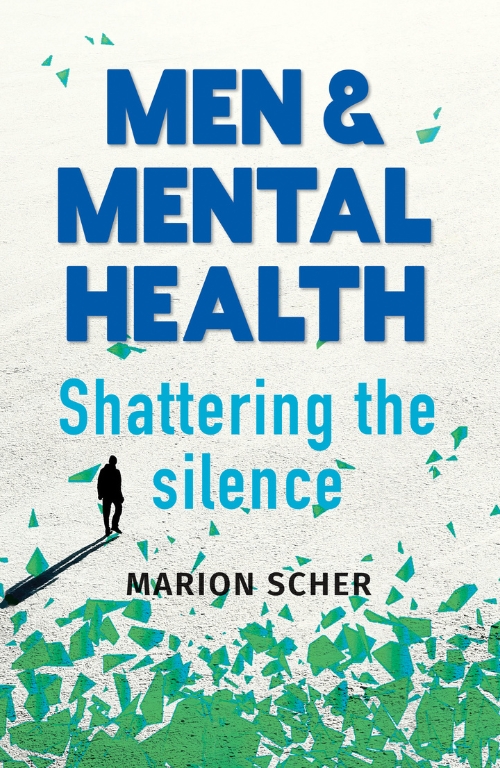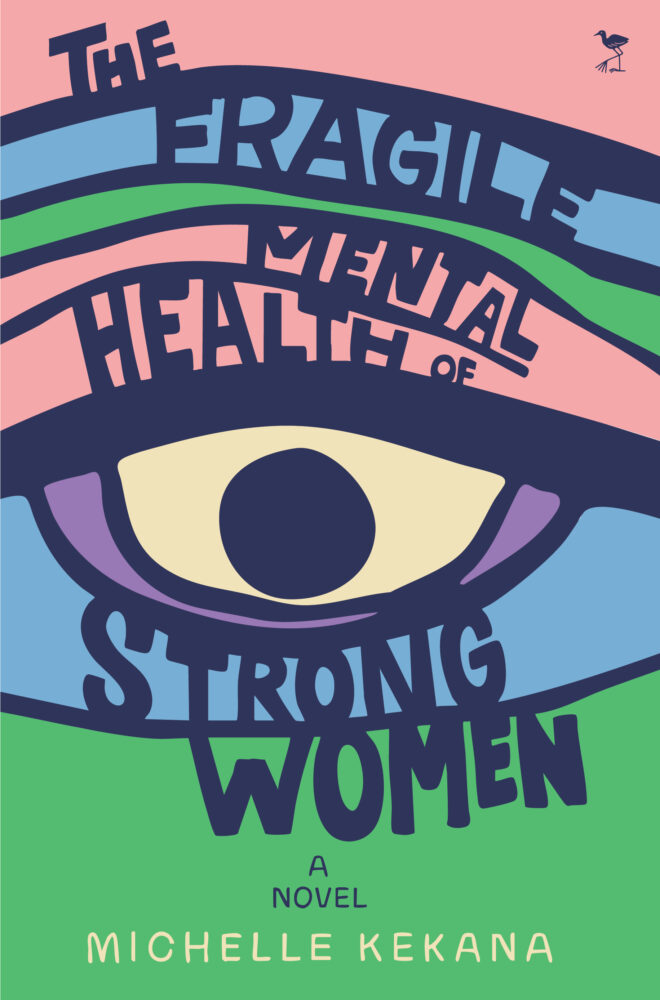Author Michelle Kekana
Mental health challenges everyone, regardless of gender identity.
It is a universal human experience that transcends demographics. Whether it’s depression, anxiety, or other disorders, it can feel like a persistent shadow that never fades. People often find themselves trapped by their own thoughts and emotions, weighed down by unresolved traumas.
Out of a desire to explore the struggles of black women and queer individuals struggling with mental health issues, Michelle Kekana penned The Fragile Mental Health of Strong Women.
“The inspiration for the book is my personal battle with depression,” the debut author tells me during an interview.
Growing up, Kekana read a lot of books, which was her compass of choice in navigating the world. But young Kekana rarely found books that related to the mental and emotional struggles she was going through as a teenager.
“I did not come across literature that dealt with the howling sadness that depression brought. So, a person like me just had no language to navigate the chaos.
“I wrote this book for 12-year-old Michelle, to give her the language. This book is essentially a creation of things I wish existed.”
Though women tend to seek help, most men are uncomfortable getting support for their mental health challenges. In her latest book, Men & Mental Health: Shattering the Silence, award-winning mental health journalist and author Marion Scher aimed to explore their psychological struggles.
Scher’s passion for writing on mental wellness stretches over three decades but she hasn’t done a book specifically on men, until now.
She has always found it easy to find women to tell their stories — but not men: “Mental health professionals, such as psychiatrists and psychologists, see 90% women and 10% men which in itself tells a story.
“As with all my books, my inspiration is always to start conversations around the topic — in this case men and mental health,” Scher says.
These two books — one fiction and the other non-fiction — create a much-needed conversation between men, women and the LGBTQ+ community.
Kekana and Scher essentially sing from the same hymnbook to deeply echo the melancholy that many endure. The two offerings can serve as a lighthouse when one is lost at sea with neither direction nor hope.
Often books on heavy topics like mental health can be highly academic, filled with complex medical definitions. Though from different genres, Kekana and Scher both use an easy-to-read structure and tone. Through their relatable writing styles, the authors offer a balance between statistics, facts and personal stories.
Split into three sections — The Book of Hope, The Book of Ayanga and The Book of Zethu — Kekana’s novel explores three women’s battles with depression, suicide attempts, queer identity and rape.
Her novel reads like someone’s diary, with heartbreaking revelations. The first-person narration in the three stories is layered with an intimate and restrained tone, mostly through short sentences making the gloomy themes somewhat digestible.
“The aim was to navigate the inner dialogue of a person who is living with mental health issues.
“I thought it would be important to pen the book in the first person so that the reader is seeing the world and experiencing the psyche of the characters first hand,” Kekana says.
The author adds that she needed the characters to be the direct observers of their own internal spaces.
“So they can fully describe what they feel and see without the danger of being misinterpreted by third-person narration. In as much as the characters were wanting to be understood by the reader, they were also attempting to understand themselves, in real time.”
In her illustrious career as a journalist and author, Scher says simple writing style works best.
“I have spent quite a bit of time studying just what makes someone stop reading and it’s exactly what you say — heavy topics filled with complex medical descriptions.
“What’s the point of writing something no one is going to read?
“I like to think my books, despite the content, are page turners. I love to hear the comment, ‘I couldn’t put it down.’”
 Author Marion Scher
Author Marion Scher
These two books give readers an opportunity to learn how those in mental and emotional distress can seek help in various ways.
Although Kekana explores women’s stories, there are male characters who highlight the mental health dynamics in a household.
In The Book of Ayanga, for instance, Kekana looks at the theme of post-natal depression through new mother Ayanga and father Sizwe.
Also called “baby blues”, post-natal depression is often misunderstood and misdiagnosed. We see the lack of understanding of this issue between wife and husband play out viciously in this chapter.
Sizwe doesn’t fully fulfil his role as a new father and try to understand the wife’s struggles.
New parenthood, Kekana says, can be fraught with enormous difficulties, even when the child is planned and deeply wanted.
“I have seen so many solid relationships crumble after the birth of a child because people wrongly assume that, because motherhood is natural, then it is easy. Which can be so far from the truth.”
Beyond financial support, Kekana says men are slow in coming to the party when it comes to the practical assistance needed by new mothers.
“We have to realise that mothering instincts cannot take care of and keep an infant alive and growing on their own. The hormonal upheaval, the lack of sleep, coupled with the inexperience, can be devastating for new mothers.
“In Ayanga’s case the worst-case scenario becomes a reality. Mothers need help. I hope that the story of Ayanga acts as an SOS. That it rings the alarm and gets new mothers [and fathers] help,” Kekana says.
On the other hand, Scher had the gruelling task of finding men to open up to her about mental health.
In addition to psychiatrists and psychologists, Scher interviewed some of South African sporting legends, top entertainers and heads of corporations. These include Chad le Clos, Rhys Thomas, Swys de Bruin, David Kramer, Eugene Khosa and Alex Jay.
How did Scher deal with the challenge of getting men to speak freely when writing her book?
The author says it was an uphill battle, which meant it took a long time to finish the book. “But what was surprising was that, when I did interview these men, they opened up so honestly and freely, even allowing me to use their real names.
“They all wanted other men to read their stories. When people see such men tell their stories they will realise that they’re not on their own in this journey and that it’s possible to get help — if you just reach out for it,” Scher says.


In essence, Kekana’s and Scher’s books encourage an opening up about our emotional vulnerabilities and battles towards mental wellness, regardless of gender.
According to the World Health Organisation, good mental health is a state of well-being that enables people to cope with the stresses of life, realise their abilities, learn and work well, and contribute to their community.
Besides therapy, developing good mental health can include sitting with the difficult emotions, practising self-care, activities in nature and building good relationships. Creating conversations among family members and friends is what Scher suggests as a possible solution towards healing, particularly for men.
“Fortunately for me, my daughter and daughter-in-law are both clinical psychologists, so this is a topic that is often talked about openly with the men in my life.”
Men, Scher adds, keep everything inside and put on a brave face so their families, friends and work colleagues won’t know what they’re going through.
“Fear of losing face, losing their jobs — seeing mental health in a completely different light to telling someone you have heart disease or a kidney problem. This is why we desperately need to start talking more about this topic,” Scher says.
Through characters like Hope, Kekana shows how things like new friendships, baking, reading and therapy can be empowering for one’s mental wellness.
“Hope finally lives up to her name by being her own knight in shining armour. Adulthood is sometimes about realising that we must become our own rescue crew.
“That we must assign meaning to our own lives, that we must find our own tribes.
“Everything that Hope did to get herself out of the spiral of unemployment and depression is a thing that she always had access to.
“She just tuned into her power,” Kekana concludes.
If we are to understand the root causes of South Africa’s high rate of divorce, toxic relationships, suicide deaths and gender-based violence, surely the conversation must be broadened.
Now, more than ever, fostering understanding, empathy, and kindness is essential if we hope to heal — both individually and as a society.
The Fragile Mental Health of Strong Women is published by Jacana Media and Men & Mental Health: Shattering the Silence is published by Bookstorm.